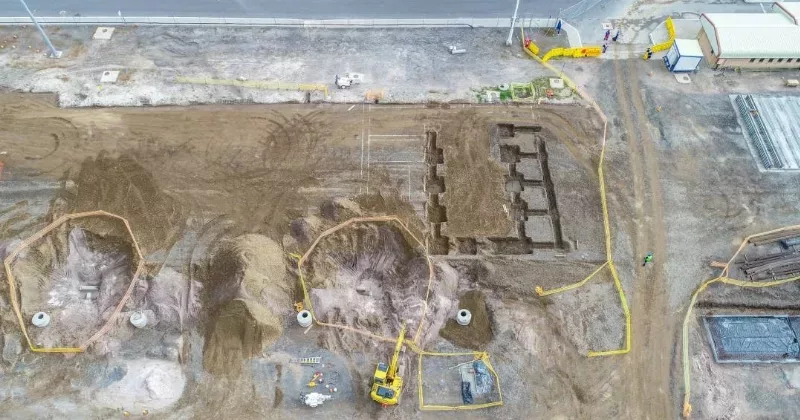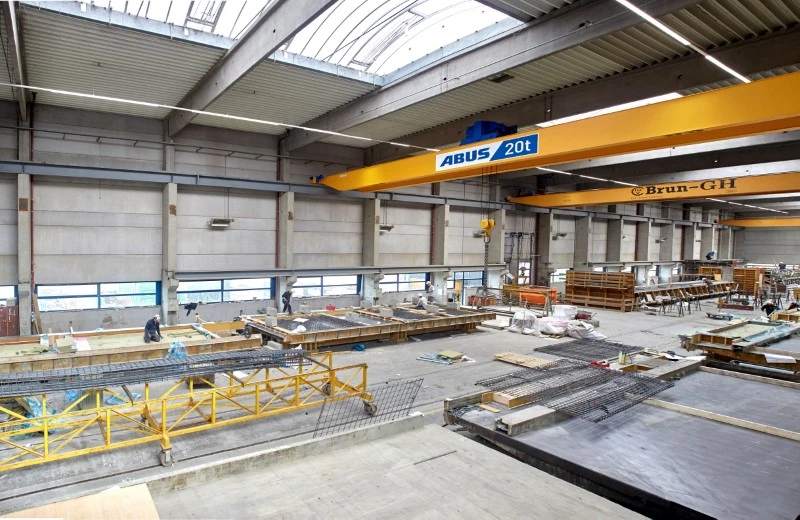
Construction Accounting Software
Finance managers play a crucial role in formulating and executing financial strategies for construction projects. Construction accounting software is a valuable asset for them, as they provide the tools to streamline budgeting, cash flow forecasting, and financial risk analysis. Finance managers can keep better tabs on spending, monitor financial performance, and find ways to save money with the use of sophisticated analytics and real-time access to project data. These software solutions enhance transparency, which in turn improves communication with stakeholders. Specifically, the capabilities provided by RIB Software enable financial managers to improve financial strategies, minimize risks, and keep projects under budget.

Comprehensive Accounting Software for Construction Companies
RIB’s construction accounting software offers a powerful suite of tools designed to manage all financial aspects of construction projects with ease. Ensuring financial accuracy throughout the project lifecycle, it allows companies to track expenses in real time, manage budgets, and monitor cash flow. With these tools, you can handle invoices, payments, and financial reporting all from one platform, since it integrates seamlessly with other project management tools. With RIB’s accounting solutions, construction companies can ensure better financial control, compliance, and profitability on every project.
RIB BuildSmart
Effective financial management is the backbone of any business. RIB BuildSmart’s feature-rich enterprise accounting software for construction and engineering companies has been developed over 40 years through work with hundreds of large and small contractors. The result is a powerful solution built on international industry best practices.
RIB BuildSmart is the only choice for construction accounting software, reporting ALL committed, accrued, and actual project costs, by ledger code and activity. This system provides real-time cost management information and integrated enterprise accounts.
- Manage multiple companies and currencies with full or partial consolidation.
- Includes contractor-specific controls for the management of subcontractors, contract debtors, plant and equipment, consumable and non-consumable stock, and contract revenue recognition.
- Dynamic system roles allow for correct segregation of duties with strict access controls.

RIB 4.0
RIB 4.0 supports financial managers through precise cost control, detailed financial project planning, cash flow management, integrated financial reporting, and efficient contract and invoice management. The software also facilitates compliance and auditing by providing transparent and traceable financial data.
- RIB 4.0 assists finance managers in optimizing the financial control of construction projects, reducing risks, and ensuring efficient, compliant financial management.
- Cost control and budget monitoring: Precise and project-phase-specific financial control.
- Financial project planning: Detailed financial forecasts and risk minimization.
- Cash flow management: Ensuring optimal liquidity throughout the project.
- Integrated financial reporting: Comprehensive overview and reporting functions.

What Our Clients Say
Construction Accounting Software FAQs
Construction accounting software is a specialized solution that streamlines the financial aspects of a project. It offers powerful budgeting, estimating, payroll, billing, and expense-tracking functionalities to tackle financial challenges and ensure profitability.
These solutions are important mainly because accurate estimates and budgeting decisions significantly influence a project’s success. Professional software offers a high level of visibility in all financial aspects, allowing for the early identification of issues thanks to real-time comparisons between forecasts and as-built values.
Professional construction finance software offers a wide range of benefits, the main one being the optimization of all the financial aspects of the project and the overall company. This allows decision-makers to implement informed strategies in less time and with higher success, ensuring a smooth transition from one phase to the other. Other important benefits these solutions offer include:
- Better budget management: Construction budgets are complex, accounting for materials, labor, equipment, software, and many other indirect and direct costs. Specialized software is designed to help manage all expenses in real-time and in a unique location, providing visibility into the budget and allowing for the identification of improvement opportunities to ensure the project remains profitable.
- Increased efficiency and profitability: These solutions become a centralized hub for all financial aspects of a project, including key documentation and data. This helps ensure every detail is considered when making decisions, significantly decreasing the risks of errors that can result in costly rework. In the end, having this level of visibility increases the project’s efficiency and profitability.
- Enhanced accuracy and planning: The powerful functionalities provided by these tools allow companies to generate financial forecasts that make allocation of resources and planning a lot more accurate. Plus, they allow for real-time monitoring and comparisons, which makes it easier to spot issues early and ensure that everything runs as expected. Data entry is automated, which also decreases the risk of errors due to manual data manipulation, contributing to the accuracy of the insights.
- Boosts compliance and risk mitigation: Finances in a construction project are not just about maintaining a budget; there are also regulatory requirements that must be followed to avoid fines or legal disputes. Professional software facilitates compliance by offering features like audit trails and historical data to spot any issues and handle them with a high degree of transparency and agility.
- Increased communication and collaboration: These solutions also improve stakeholder communication and collaboration by offering a centralized location to manage all project documentation and data. This ensures everyone is on the same page and informed about the latest developments, which translates into less rework and better financial management.
The best construction financing software is the one that meets the company’s specific needs and goals. Therefore, it is hard to say which solution is the best. However, any tool worth its salt should offer the following features:
- Cost reporting: Interactive reporting features should allow companies to accurately compare actual costs to budgeted costs in real-time, allowing for timely interventions that help to maintain project profitability. Expenses can be categorized by project, contracts, or other criteria to ensure clarity. Cashflow analysis reports help to maintain liquidity throughout the entire project.
- Procurement: Construction procurement management is fundamental to a project’s financial success. For that reason, specialized software should allow users to manage the entire procurement process, including requisitions, approvals, purchase orders, deliveries, and invoice reconciliation.
- eRFQ: An electronic request for quotation (eRFQ) is a powerful functionality that digitizes the quotation process, making it faster and more organized. Contractors can send eRFQs automatically to qualified suppliers with relevant attachments like a BoQ, terms and conditions, and other relevant documents.
- Payroll management: Managing payroll effectively is a crucial part of the financial management of a project. Modern software should allow you to visualize payroll data for different construction roles as soon as it is captured to optimize the payroll process.
- Inventory management: Excess inventory can harm a project’s financial health. An inventory management feature should allow you to track and optimize inventory levels across multiple sites to ensure the right amount of assets are available when and where needed. This reduces waste, saves time, and lowers risk.
- Plant management: Asset depreciation and loss can delay projects due to unexpected downtime and negatively affect profitability. For that reason, the best software should allow you to track several aspects of plant performance, including plant hire, usage and repair history, and fuel consumption. Additionally, it should allow you to understand the costs associated with specific plant items from purchase to disposal to make the most of each asset.
Finance might sound like a universal language, which is why so many generic solutions can do the job right. However, while rooted in traditional accounting principles, the construction industry operates uniquely, with unique challenges related to contract management, budgeting, variations, change management, and much more. Often, generic solutions are not designed with these specific challenges in mind, leaving them falling short compared to specialized solutions.
Specialized construction financing software allows teams to look at multiple projects simultaneously and integrate financial data with schedules and other project elements to get a 360-degree view that supports strategic decision-making. These solutions also help manage the complexities of the different types of construction contracts, allowing for flexible payment schedules based on changing conditions. Additionally, they automate several tasks, including data entry and estimating, ensuring a level of accuracy necessary to thrive in the building industry. Lastly, these tools have been developed by experts with decades of experience in construction who are always available to help and advice on the best use of technology. All of this makes specialized financing solutions superior to generic ones.
These powerful solutions improve productivity in construction projects by automating several processes related to finances, including cost estimating, invoicing, and real-time progress tracking, just to name a few. This leaves teams enough time to focus on other high-value tasks while decreasing the risk of errors affecting the budget. Additionally, a range of financial reporting options allows for the extraction of valuable insights regarding budgets, cash flow, inventory, and more, to inform decision-making and allow for the mitigation of risks, making processes much more productive and successful.
Furthermore, the online nature of these tools facilitates communication and collaboration between field and office teams, ensuring the right information gets to the right people at the right time, boosting productivity and efficiency.











